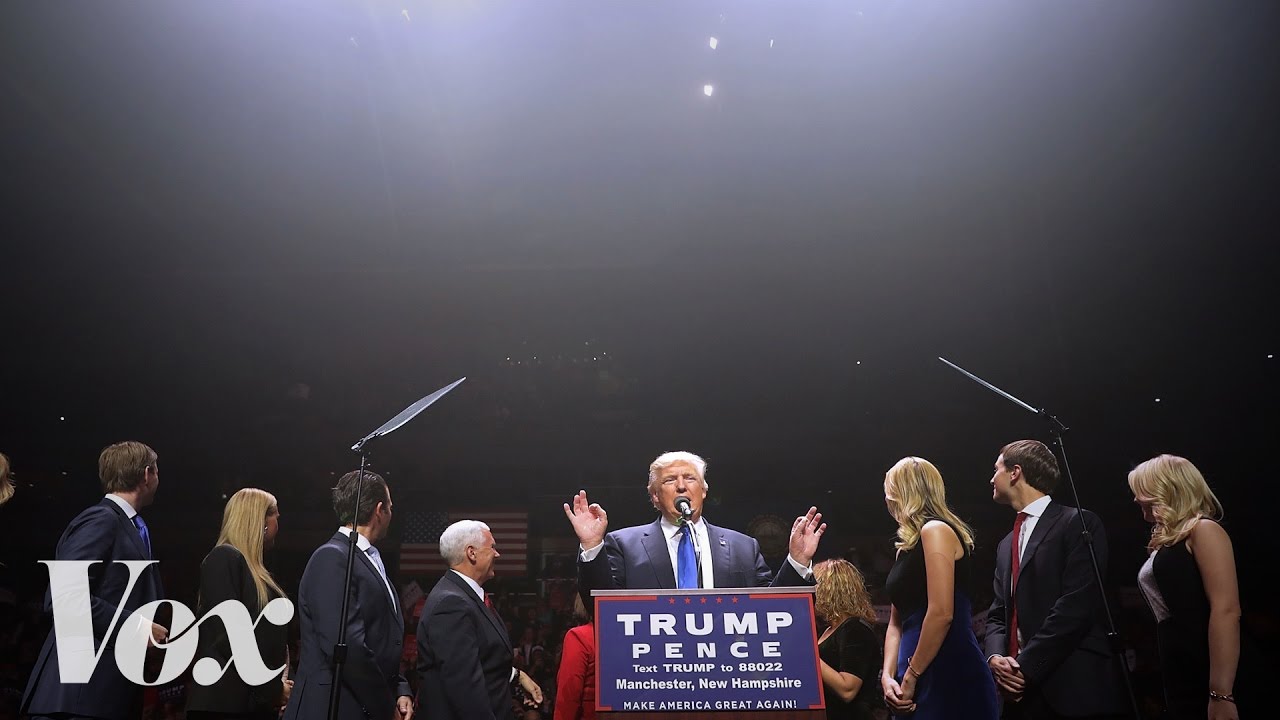Donald Trump's Success Reveals A Frightening Weakness In American Democracy
Unleash Your Creative Genius with MuseMind: Your AI-Powered Content Creation Copilot. Try now! 🚀
In 1787, at the end of the Constitutional Convention, Ben Franklin emerged from Philadelphia's Independence Hall to face an anxious crowd. A woman from Philadelphia approached him and asked a pivotal question, "Well, doctor, what have we got, a republic or a monarchy?" Franklin's famous reply echoes through history, "A republic," he said. "If you can keep it."
The Forgotten Experiment
What we've lost since Franklin's time is the understanding that America is an experiment, susceptible to failure. The shockwaves of Trump's presidency have revealed a deep flaw at the heart of American democracy. He exploited it, and others may follow. The precariousness of our democracy has been laid bare.
Trump's Authoritarian Aspirations
Trump's presidency has shown us that he admires authoritarian leaders for one glaring reason – they are authoritarians. He appreciates their disregard for democratic norms like a free press, due process, and political opposition. He openly expressed admiration for the likes of Putin, Kim Jong Un, and even Saddam Hussein.
This admiration isn't merely a matter of personal preference; it signifies a willingness to bring authoritarian tendencies to the United States. Threats to jail political opponents, restrict the press, and incite violence against protestors were all part of his campaign rhetoric. The power to pardon in the hands of such a leader is a chilling prospect.
Founding Fathers' Caution
The Founding Fathers anticipated the allure of demagogues. James Madison, in Federalist 10, warned that individuals with sinister designs could manipulate and betray the people's interests through intrigue and corruption. This cautious view of the popular will was embedded in America's system of government – a republic, not a direct democracy.
Erosion of Institutions
To understand Trump's rise to prominence, we must turn to our institutions. Trump's path to power had two critical stages. First, he won the Republican primaries, and second, he united the Republican party behind him. These two steps are distinct, despite often being conflated. The primaries were never meant to wield such influence, as they were originally controlled by party officials. Over time, primaries became more democratic, giving voters more say.
However, the loss of control didn't stop there. Money and media attention, tools parties used to influence their primaries, became less effective. So, Trump won with only 13.8 million votes in the primaries, yet he now enjoys the support of over 60 million Americans in the general election. This was possible because parties and their officials lost their influence over their base.
Fear of the Other Party
The fear and loathing of the opposing party have reached alarming levels. Partisan animosity has grown to such an extent that a significant portion of the population believes the other party's policies threaten the nation's well-being. This fear is most prevalent among the politically engaged, making it a driving force in American politics.
This fear of the opposition party becomes a self-fulfilling prophecy, driving partisan voters to rally behind their party's nominee, no matter who it is. Trump managed to unite Republicans due to the belief that he was the only alternative to what they perceived as a criminal opponent. This explains why even those who initially opposed Trump within the Republican Party ended up supporting him.
The Collapse of Gatekeepers
Traditional gatekeepers in American politics, including party officials and the media, have lost their power to prevent Trump-like candidates from ascending. In this new political landscape, these gatekeepers lack the authority and cultural capital to halt the rise of unconventional candidates. The aftermath of a Trump loss is likely to weaken the party's center further, as his supporters may turn on party officials who did not wholeheartedly back their candidate.
In this era of rapid demographic change, some white male voters see it as a loss of status and political power. The combination of fear, anger, and shifting demographics makes it clear that the American political system is susceptible to catastrophic failures.
A Precarious Democracy
This unnerving period in American politics has revealed that we cannot take the resilience of our democracy for granted. Trump may be a crude and undisciplined demagogue, but the world also produces clever, disciplined ones. These figures pose a far more significant threat to republics. The warning is clear: the experiment of American democracy must be nurtured, defended, and continually improved, for it can fail just like any other. It can happen here.

Related Recaps
- Praise the Lord | Praise the Lord Malayalam Movie Scene - 06 | Mammootty | Mukesh | Indrans | Sadiq
- Đi ăn quán bún chả Hương Liên - bún chả Obama đông kín người
- FOR SALE - 2015 Peterbilt 579 - Paccar MX13 - 455hp / 13 Speed Manual - ROAD READY!
- 2023 Ford F-150 ESCONDIDO,CARSLBAD,VISTA,SAN MARCOS,SAN DIEGO E230275
- Atlanta Hawks vs. Miami Heat Full Game Highlights | Apr 11 | 2022-2023 NBA Play-in